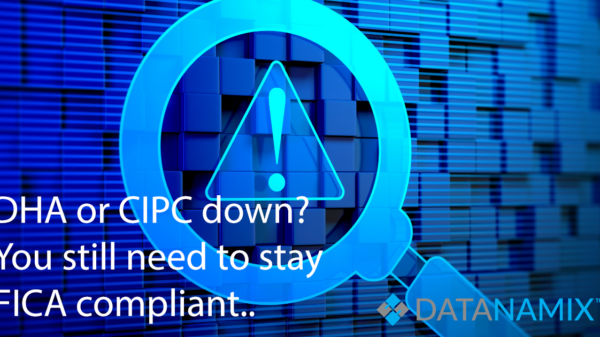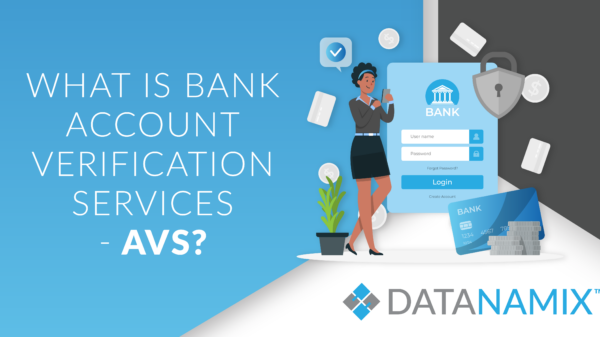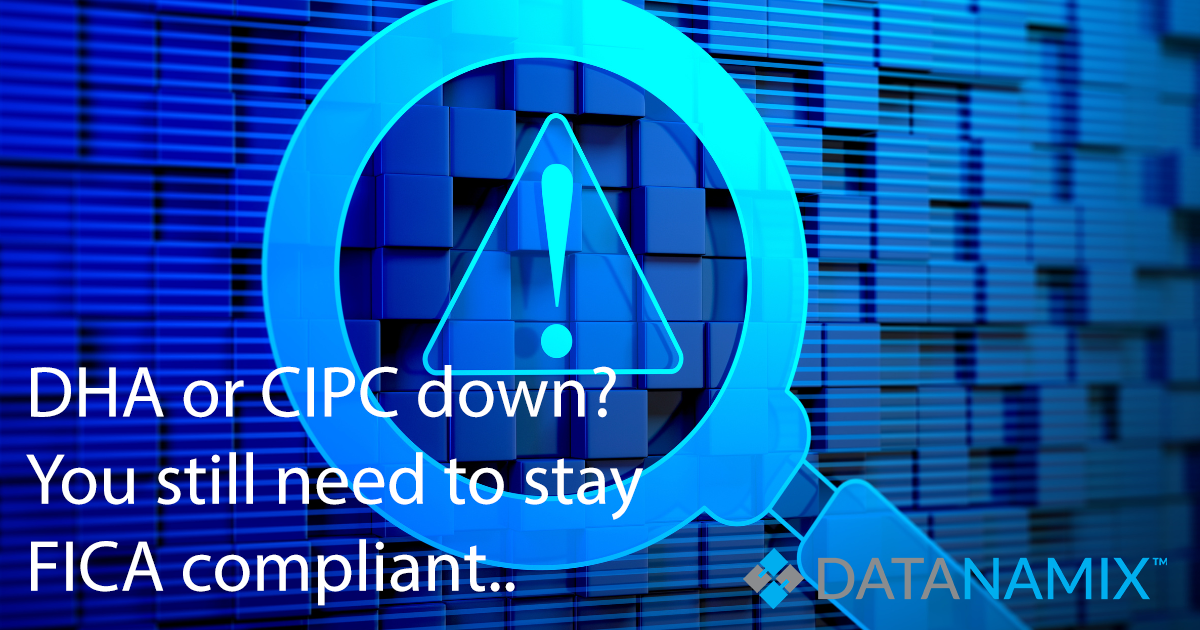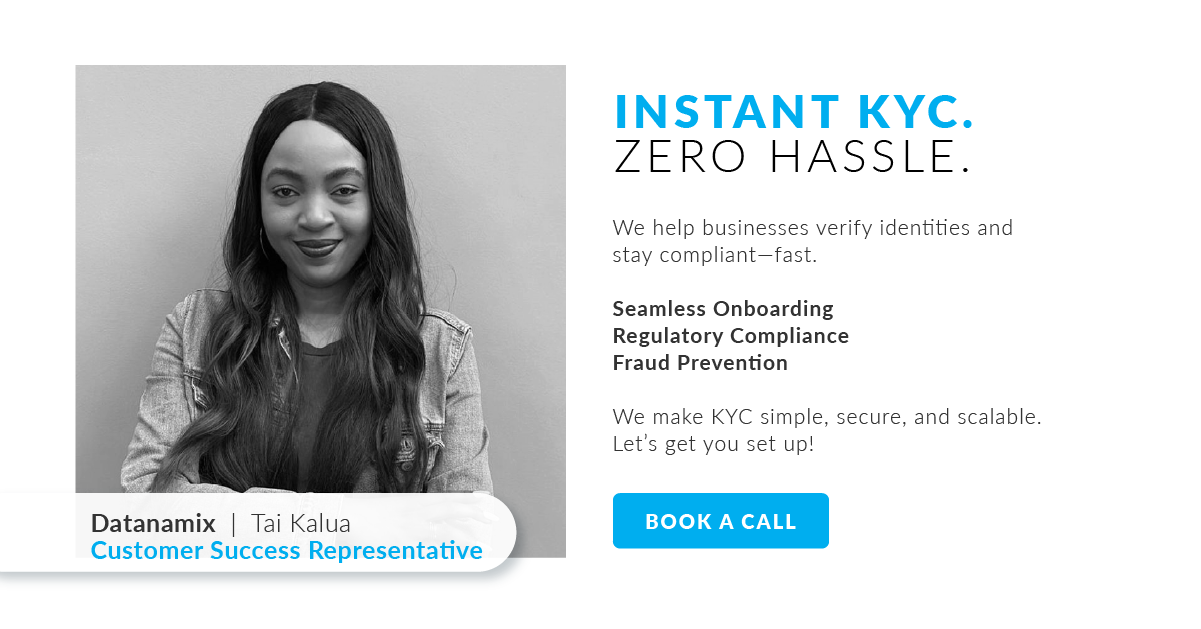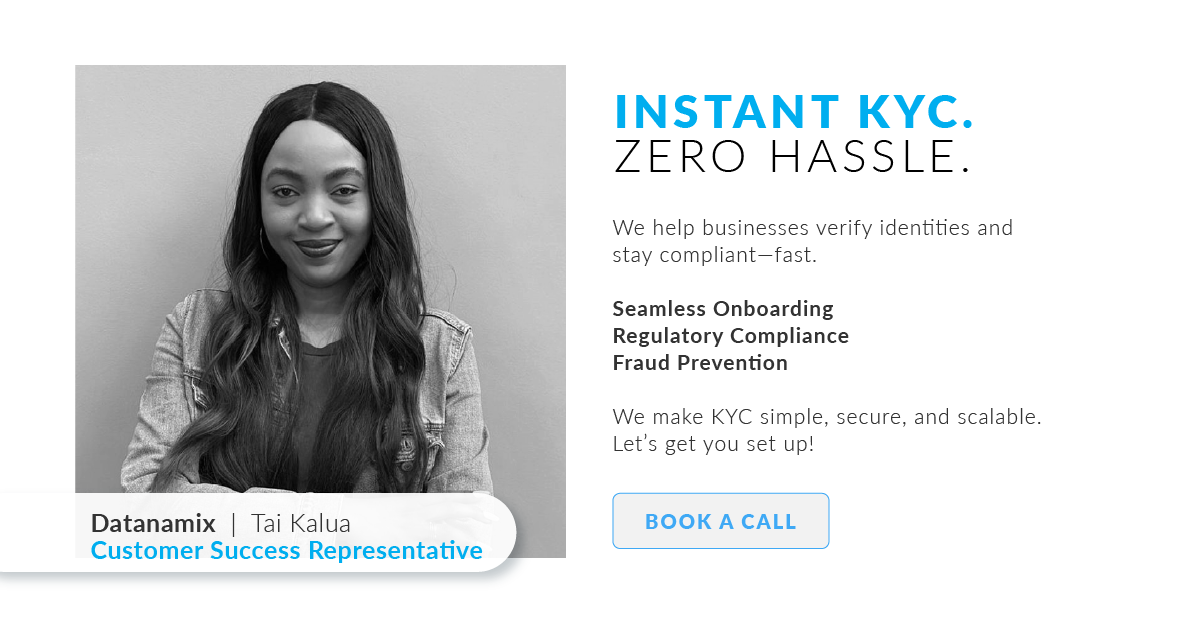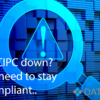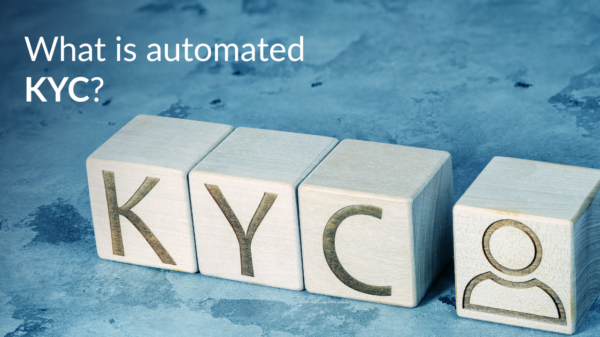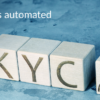If your business has ever been left hanging because Department of Home Affairs (DHA) services were offline or Companies and Intellectual Property Commission (CIPC) tools suddenly became unavailable, you’re not alone. In South Africa, countless organisations depend on these government systems to stay FICA compliant—from banks and insurers to telecoms and fintech companies.
But what happens when DHA verification services are down, sometimes for days, or CIPC limits access to company records with no warning?
You still need to remain FICA compliant, process customers, and operate without disruption. And you must do this even if DHA or CIPC systems are unavailable. Staying FICA compliant shouldn’t mean waiting for someone at CIPC or DHA to flip the switch back on.
In this blog, we unpack the risks of relying solely on government data sources, the impact of service suspensions like the SARS VAT verification tool, and—most importantly—how your business can remain FICA compliant in a world where DHA and CIPC access can’t be guaranteed.
Why your business must stay FICA compliant—even without DHA or CIPC
Being FICA compliant is a legal requirement that protects your business from fraud, money laundering, and reputational damage. When you rely solely on DHA and CIPC, you’re placing your trust in two systems that are increasingly unpredictable.
DHA systems often experience technical outages or maintenance windows, and CIPC has recently shown a trend toward limiting services, raising costs, or suspending tools entirely. So, what do you do when these systems are down? You still need to process clients, validate directors, check identities, and stay FICA compliant.
Relying exclusively on CIPC or DHA creates a single point of failure in your compliance processes. In a competitive market, that can cause lost revenue, delayed onboarding, or even fines for non-compliance. To stay FICA compliant, businesses must diversify their verification methods and adopt tools that continue to work even when DHA or CIPC do not.
The cost of dependency: How DHA and CIPC disruptions hinder FICA compliant processes
When CIPC pauses services or DHA systems are offline, the domino effect can be brutal. Compliance teams are stuck waiting. Sales teams can’t onboard new clients. Operations grind to a halt. And all the while, you still have regulatory expectations to remain FICA compliant. What’s worse is that these interruptions come without warning, and often with no communication as to when services will resume. Your business becomes the casualty of a system you have no control over.
The recent suspension of the SARS VAT vendor search API tool is a wake-up call. These services are fragile, without any gaurantees and could change without much notice. The truth is, many government departments are not just limiting services—they’re also increasing costs without necessarily improving service delivery. This puts added pressure on businesses trying to stay FICA compliant while navigating red tape, technical failures, and inefficiencies.
What happens to your risk profile when DHA and CIPC aren’t available?
Risk and compliance managers know that downtime doesn’t pause your obligations. Whether DHA or CIPC is offline, you’re still expected to be FICA compliant, mitigate fraud risk, and demonstrate audit trails. But when your entire verification stack is built around two unreliable government data sources, your risk profile balloons the moment those systems go dark.
Imagine processing a high-value customer or onboarding a new business partner. You can’t validate their ID via DHA, and their company details from CIPC are suddenly unavailable. Do you stall the onboarding? Do you make a risky decision? Neither is ideal. Without alternatives, you’re forced to choose between delaying business or compromising compliance.
A FICA compliant process must include backup verification options that reduce this kind of operational and reputational exposure.
Being FICA compliant starts with building a more resilient identity verification process
To remain FICA compliant in the long term, businesses need to rethink how identity and business verification is done. A resilient compliance process does not depend solely on DHA or CIPC for every verification touchpoint. Instead, it leverages a network of third-party data sources, digital tools, and APIs that work in real time—even when government systems don’t.
What does this look like? It means using alternative identity datasets to cross-check ID numbers when DHA is offline. It means validating director and business registration details through industry sources when CIPC access is restricted. And it means making sure your FICA-compliant strategy is powered by systems that scale, adapt, and don’t break when public systems do.
The hidden costs of DHA and CIPC reliance for South African SMEs
For small and medium businesses, the hit is even harder. Many SMEs don’t have the internal resources to manage compliance disruptions caused by DHA or CIPC outages. They need fast, efficient onboarding. They need affordable, always-on verification. But the more they rely on CIPC or DHA, the more they’re exposed to slowdowns, price hikes, and data limitations. These hidden costs—missed deals, longer onboarding, higher risk—can snowball quickly.
To remain FICA compliant, SMEs need cost-effective verification tools that reduce red tape and deliver instant results. That means breaking away from a government-only mindset and embracing multi-source verification that works with or without CIPC and DHA.
Building a futureproof FICA compliant model with or without DHA and CIPC
Being FICA compliant today means thinking beyond what has “always worked.” The reality is that DHA and CIPC have become bottlenecks rather than enablers.
Future-proof businesses are re-engineering their verification models to be system-agnostic. Whether a government database is up or down, they can onboard, verify, and remain FICA compliant.
This kind of futureproofing is a massive competitive advantage. It shortens onboarding time, reduces fraud risk, and enhances customer experience. More importantly, it ensures your business stays FICA compliant even when public systems fail. In an era where digital transformation is essential, relying solely on CIPC or DHA is no longer sustainable.
How to stay FICA compliant with smart tech—even when DHA and CIPC fail
Smart tech is stepping in where public systems fall short. Modern identity verification platforms are designed to fill the gap left by unreliable government systems. These platforms integrate data from multiple trusted sources, allowing businesses to remain FICA compliant – even if they cannot access DHA or CIPC data in real time.
From biometric validation to cross-database ID number verification, these tools offer the speed, flexibility, and reliability that government systems lack. And because they’re built with compliance in mind, they help you remain FICA compliant while also improving the efficiency of your onboarding workflows. Businesses that integrate this kind of tech are no longer at the mercy of CIPC outages or DHA system delays—they operate on their own terms.
Datanamix: Your always-on partner in staying FICA compliant
At Datanamix, we know what it takes to stay FICA compliant—even when DHA and CIPC don’t cooperate. Our platform is built to keep your business moving, regardless of public system outages.
By combining alternative data sources, robust APIs, and compliance-grade checks, Datanamix helps you verify identities, companies, and bank accounts—without waiting on government systems to catch up.
Whether you’re a large financial institution or a growing SME, Datanamix gives you the power to stay FICA compliant, minimise risk, and deliver fast, compliant onboarding. When DHA is down and CIPC is unavailable, Datanamix is your reliable fallback—and your strategic advantage.
Want to stay FICA compliant no matter what?
Let’s build a smarter verification process that works with or without DHA and CIPC.
Contact Datanamix to get started

